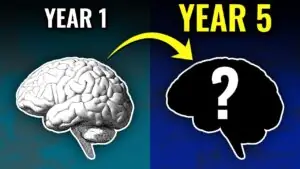TLDR
The speaker, originally from Guatemala, discusses his journey from receiving a quality education as an only child of a single mother to creating Duolingo, an app for learning languages. He chose to focus on language education because of its potential to improve income and its global demand. Duolingo uses a freemium model, making education accessible to all and is funded by wealthier users. The app employs techniques like streaks and notifications to encourage daily use, making learning addictive in a positive way. His goal is to apply these methods to other subjects, making education engaging and accessible worldwide.

✅ AI Essay Writer ✅ AI Detector ✅ Plagchecker ✅ Paraphraser
✅ Summarizer ✅ Citation Generator
This article is a summary of a YouTube video “How to Make Learning as Addictive as Social Media” by TED
Key insights
- Language Education as an Equalizer: Recognizing the disparity in education quality based on economic status, the speaker focuses on language learning as a tool for income improvement, especially for English learners.
- Choice of Platform: The choice of a mobile app for Duolingo is strategic, considering the widespread accessibility of smartphones over building physical schools.
- Engagement Techniques: Duolingo’s success lies in its gamification and psychological techniques (like streaks and notifications) to make learning as engaging as social media.
- Revenue Model: The freemium model serves as a form of wealth redistribution, where wealthier users subsidize the free users, ensuring wide accessibility.
- Future Education Goals: The speaker envisions applying Duolingo’s techniques to other subjects, making meaningful education accessible on a global scale.
Timestamped Summary
- 0:04-1:23: Introduction to Guatemala, humor about its location, and personal background.
- 1:24-4:06: Motivation to create an accessible education tool, leading to the development of Duolingo.
- 4:07-6:58: Explanation of Duolingo’s freemium model and the app’s revenue source.
- 6:59-9:57: Duolingo’s engagement strategies like streaks, notifications, and leveraging internet memes.
- 9:58-11:57: Future hopes for applying Duolingo’s educational methods to other subjects for global access.
- 11:58-12:52: Discussion on how to apply Duolingo’s learning techniques to other educational subjects.
Q&A
Follow us on Reddit for more insights and updates.





Comments (0)
Welcome to A*Help comments!
We’re all about debate and discussion at A*Help.
We value the diverse opinions of users, so you may find points of view that you don’t agree with. And that’s cool. However, there are certain things we’re not OK with: attempts to manipulate our data in any way, for example, or the posting of discriminative, offensive, hateful, or disparaging material.